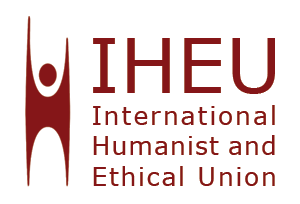Yesterday, the Premier of the Western Cape, Democratic Alliance (DA) Leader Helen Zille said:
and that’s how the fight got started. For a number of hours after this tweet, Zille was drawn into debate (well, insofar as the medium permits) on the religious views of Hitler, Stalin, Pol Pot etc., the putative moral virtue of Mother Theresa, and various other issues relating to religion and/or the absence of it.
Zille apologised for and retracted the tweet above, and it must be said that many who jumped into the conversation didn’t follow it from the start, and were guilty of some over-reaction themselves. In fact, the over-reaction persists today, where some legitimate criticism is being mixed in with abuse and caracaturing of her views and motivations.
If you read her tweet in the context of the conversation, I think it clear that she was responding to Kevin King’s introduction of the idea of religion-bashing by atheists, albeit in a rather glib and unfortunate way, given that the conversation began with Mandy de Waal offering an example of religious fundamentalism causing deaths.
But given the context of the conversation, it was a foot-in-mouth moment rather than an expression of religious intolerance. Despite this, her defence of the tweet, and a few follow-up tweets, indicate that Premier Zille does appear to hold rather misguided views on what atheism is, and what atheists believe.
First, though, I will agree with her on a central point, and annoy many atheists in the process: it’s entirely possible for atheists to be fundamentalists.
If you understand “fundamentalism” in the classic sense, in other words strict adherence to some set of doctrines, then atheists can’t be fundamentalists, as we have no doctrines. (Atheism being simply, and only, the absence of a belief in a deity or deities.)
But language and usage evolves, and it seems entirely permissible to me for “fundamentalism” to be taken as referring to certain ways of being anti-theist, rather than atheist. One relevant category of action would be to ridicule, mock, or insult; another would be to hold your atheism dogmatically, in the sense that you find it impossible to entertain any claims regarding the potential value of religion.
I’ve read my Dawkins, and know that folk will disagree with me on the first category above, insisting that “passion” gets mistaken for stridency. And on the second, I suspect many will say that there’s nothing to entertain, and that those of us who do are simply being “accommodationists”, weasels or something like that.
I’ll not rehearse those arguments now, but will instead point you to an earlier post which deals with some of these arguments at greater length. Here, I just want to say that I agree with Zille on that point, but nevertheless think that she should reconsider her beliefs with regard to atheism and its role in both history and contemporary society.
Even though she made repeated references to her party being committed to religious freedom, and asserted that she is similarly committed, her expressed thoughts on Twitter indicate prejudice against the non-religious. For example:
As my earlier post argues, these sorts of sentiments are thoroughly confused, in that none of these examples were motivated by their atheism (for those who were atheists). The first tweet above should refer to “psychopaths” or “sociopaths” or something rather than atheists, because none of the claims made (commit mass slaughter; believe they are God; have an ideology) are remotely true of atheism in general.
The second tweet again makes the mistake of thinking that atheism is an ideology, or something that informs the lives of atheists in some sort of fundamental way. We’re just like you, Helen, and our atheism is usually as much of an “ideology” as your disbelief in Thor is.
And yes, perhaps people who happen to have been atheists have indeed killed many people, but either that’s coincidental, or you’re making a causal claim about either atheism conducing to evil deeds, or religion conducing to good deeds. Evidence suggests the final option might be what she thinks is the case:
And here I’ll say “sure, maybe that’s true” – but we’ve got zero reasons for believing it to be true. It’s an empirical question, and someone like Zille, who seems fond of data-driven approaches to things, might perhaps know of some of the ways we can distinguish better and worse answers to the question.
For example, does criminality, gender discrimination, murder and so forth tend to correlate positively with religious or non-religious societies? (The former, i.e. non-religious societies are more pleasant.) Does thinking about morality as necessarily connected to religion make any sense? (No – read your Plato.)
And, does thinking about morality as being intimately connected to religion impede moral understanding and thinking, by infantilising us, and making us unable to resolve moral issues through reason? (I think so.)
Zille does seem entirely sincere in her commitment to religious freedom, but that’s not much comfort when she appears to hold rather unsophisticated views on these matters. She’s endorsing dangerous stereotypes in tweeting these sorts of things, and furthermore, doing damage to the DA’s brand.
We’re living in a world where discrimination against the non-religious is quite a significant problem, and the leader of our only (quasi) liberal party should be expected to stand against discrimination, rather than offer it fuel.


















